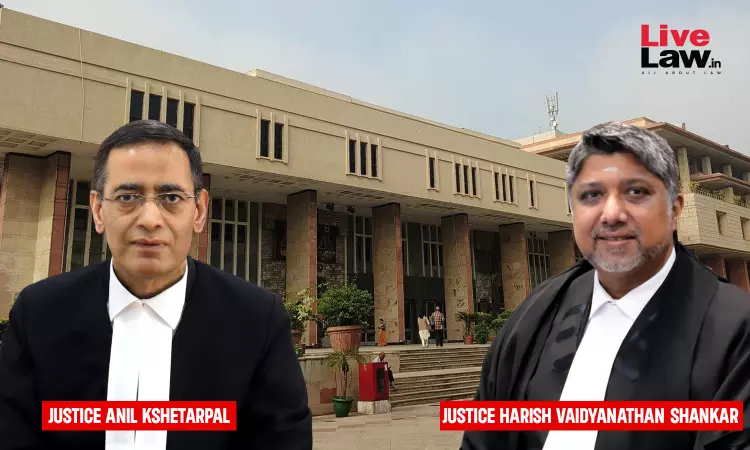Homemaker's Efforts Help Husband Build Assets, But No Law To Back Her Ownership Rights: Delhi High Court
Nupur Thapliyal
12 Sept 2025 2:25 PM IST

The Delhi High Court has observed that there is no statutory basis at present recognising the contributions of homemakers in taking care of the household, family and children, “which remain hidden and downplayed,” for making any determination on their ownership rights, or even to quantify the value of such contributions.
“Perhaps, in time, the legislature may take measures to ensure that a homemaker's contributions are reflected meaningfully and extend the same for a determination of their rights in respect of claims for ownership on the basis of these contributions,” a division bench comprising Justice Anil Kshetarpal and Justice Harish Vaidyanathan Shankar said.
“One must not forget that, in a vast multitude of households in this Country, especially in those households where there is no assistance in terms of domestic help etc., the presence of a full-time homemaker permits the family to discount various other expenses that would have to be borne towards the maintenance of the home and family, permitting, in appropriate cases, the availability of a larger corpus by accretion on a regular basis as well as facilitating households to generate a certain amount of disposable income deployable on a gainful basis, including in the purchase of a residential property,” the Court said.
The Bench was dealing with a plea filed by a wife challenging a family court order rejecting her civil suit seeking a declaration that she will have an equal and lawful right over the suit property and will be declared as the owner of 50% along with the possession.
It was the wife's case that a wife's role as a homemaker enables the husband to engage in gainful employment and contributes directly to the acquisition of family assets, and therefore, any property acquired during the marriage, whether in the name of the husband or wife, must be treated as the product of their joint efforts.
It was contended that denial of the wife's share, particularly where she has sacrificed paid employment for family care, would amount to grave injustice, and accordingly a presumption of joint beneficial interest must arise in favour of both spouses.
Disposing of the appeal, the Court observed that a matrimonial relationship is not merely a social arrangement but a legally recognised partnership that embodies the essence and fruits of marriage.
It said that the marriage is a joint enterprise built on the common endeavour of both spouses, whose contributions, whether financial, emotional, or domestic, are integral to the stability and welfare of the family.
However, the Court clarified that mere residence of the wife in the matrimonial home, cannot, by itself, vest her with an indefeasible right of ownership over properties standing in the husband‟s name.
It added that a legitimate and enforceable claim to the husband's property must rest on proof of meaningful and substantive contribution, and in the absence of such proof, ownership remains with the titleholder, subject of course to statutory or equitable exceptions.
The Bench noted that the wife had admitted that she neither contributed financially to the purchase of the suit property nor did the Plaint demonstrate contribution in terms of domestic efforts and savings.
It said that the pleadings in the plaint were “bald assertions” and were not substantiated by any cogent evidence supporting the alleged intangible contribution of the wife in the purchase of the property in question.
The Court said that till the legislature acts and make a law recognizing a homemaker's contributions while determining their rights in respect of claims for ownership, it cannot accede to the wife's prayer for an adjudication, on the ownership rights in respect of immoveable property, purely on the strength of the contributions by a Homemaker in taking care of the household and the family and children.
The Court upheld the family court order, observing that it did not warrant any interference in appellate jurisdiction.
Title: X v. Y


